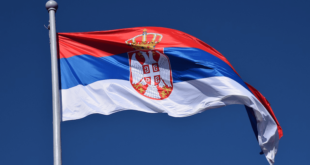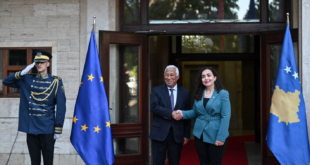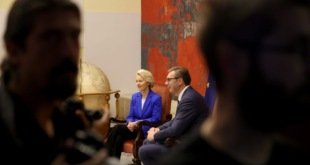 In the first case of secession brought before the ICJ, 12 of 29 countries side with Serbia, saying that Kosovo’s independence violates international law; but regardless of the final outcome, Kosovo will not return to the Serbian fold, and the entire process is likely to only exacerbate ethnic animosity, Igor Jovanovic and Anes Alic write for ISN Security Watch.
In the first case of secession brought before the ICJ, 12 of 29 countries side with Serbia, saying that Kosovo’s independence violates international law; but regardless of the final outcome, Kosovo will not return to the Serbian fold, and the entire process is likely to only exacerbate ethnic animosity, Igor Jovanovic and Anes Alic write for ISN Security Watch.
In the nine days of hearings on the legality of Kosovo’s declaration of independence, which opened before the Hague-based International Court of Justice (ICJ) on 1 December, delegations from 29 countries presented their opinions on the issue. The debate focused on whether the Kosovo’s declaration of sovereignty falls under international law, whether Serbia’s territorial integrity has been violated, and whether UN Resolution 1244 allowed for the possibility of independence.
The debate before the ICJ was initiated by the UN General Assembly, which was initiated by Belgrade, which had requested that the court examine whether Kosovo’s February 2008 unilateral declaration of independence was in line with international law.
Twelve countries supported Serbia’s stance on the issue, arguing that the declaration of independence represented a violation of international law and the UN resolution.
The remainder of countries present disagreed, supporting Kosovo’s independence as the expression of the will of the Kosovo people.
Perhaps the most precise argument in the debate was presented by the Burundi delegation, which refrained from taking either side, stressing that Kosovo would continue to exist as an independent entity, regardless of the court’s decision.
The ICJ’s opinion is advisory only, and non-binding. The 15 judges have no specific deadline for making a decision and past practice shows that they need at least a year on average to come up with a final ruling.
The Court’s officials said earlier that the decision would not be a clear yes or no, but would take the form of a massive, 30-page document. Furthermore, the judges may also hold varying opinions on the case. Eight judges are from countries that have recognized Kosovo, and seven are from those that have not.
Reality check for Serbia
Serbia still considers Kosovo to be part of its territory, and is hoping that a favorable ruling at the ICJ will stop halt international recognition.
However, Serbia’s official platform on the issue indeed seems unrealistic.
Serbian officials say they plan to suspend Kosovo’s independence and relaunch status talks on the province. If Kosovo were to remain a part of Serbia, Belgrade has pledged more autonomy for the province and more rights for ethnic Albanians.
Months ahead of the hearings, the Serbian government launched a diplomatic offensive in order to prevent further international recognition for Kosovo. Since early last year, Serbian Foreign Minister Vuk Jeremic has expended vast amounts of energy in a global tour, lobbying against recognition of an independent Kosovo.
So far, Kosovo’s independence has been recognized by 63 of the UN’s 192 countries and all but five of the 27 members of the EU.
Legal mumbo jumbo
On 1 December, Serbian and Kosovo delegations had three hours each to present their case.
Serbian diplomat Dusan Batakovic, head of the Belgrade delegation to the ICJ, said on the first day of the debate that through its unilateral declaration of independence, Pristina had jeopardized the international legal order based on the sovereignty and territorial integrity of states and the preservation of peace.
“The illegal declaration of Kosovo’s independence is an attempt to abolish the international legal regime and administration in the province introduced by UN Security Council Resolution 1244,” Batakovic told the Court.
According to him, international negotiations on the status of Kosovo, which began in 2005, were destined to the fail from the very onset, due to the fact that the US and certain other western states were advocating independence as the only solution and thus preventing any possibility of compromise.
Serbia’s main objectives were also addressed by Foreign Minister Jeremic, who said that Serbia was ready to demonstrate flexibility in new talks and was offering the broadest possible autonomy to Kosovo. “When the Court presents its opinion, the way will be open for a dialog that can produce a mutually acceptable and sustainable solution for the future status of Kosovo,” he told the Court.
However, Kosovo diplomat Skender Hyseni told the ICJ that Kosovo’s independence was irreversible and did not represent a violation of international law. Kosovo argues that the UN resolution was not meant to exclude the possibility of secession.
Hyseni underscored that it was “unimaginable to turn the clock back by resuming the status talks at the request of Serbia, which refuses to acknowledge Kosovo’s independence,” which he said would lead to a deterioration of the security situation in the region and the prospect of a renewed war.
Hyseni suggested that Kosovo’s independence had stemmed from the negotiating process led by the UN secretary-general’s special envoy, Martti Ahtisaari, and that the declaration had in fact been part of “Ahtisaari’s solution” to the Kosovo problem.
“The Kosovo authorities would welcome talks with Serbia on practical issues, on equal grounds between two sovereign, neighboring states, but they cannot accept negotiations that would put the independence of Kosovo in question,” Hyseni told the court.
Looking for precedents
Former Serbian ambassador to Paris Predrag Simic told ISN Security Watch that the debate before the ICJ was extremely important and that the eyes of many separatist movements around the world were fixed on the Court. The outcome of these proceedings will be closely watched by countries with large breakaway regions – countries that have taken Serbia’s side in the debate.
Simic, however, does not believe the court will provide a clear answer to the question of whether Kosovo’s declaration of independence was in line with international law.
Simic also believes that the EU will have to persuade Belgrade and Pristina to return to the negotiating table, as any further dispute will obstruct the European integration of Belgrade, Pristina and the entire western Balkan region.
“What the topic of those talks will be depends on the EU’s decision, but I think the union will not allow itself to let a new Cyprus in again, i.e. any member with an ongoing territorial dispute,” Simic said.
On the other hand, an MP of the ruling Democratic League of Kosovo, Bujar Bukoshi, believes the ICJ’s decision will help many countries reach a decision on recognizing Kosovo more easily. “The process has been going well, Kosovo has been defending itself well, we have gained new strong allies and I expect the epilog to be good for Kosovo,” Bukoshi told ISN Security Watch.
At best, moral satisfaction
Moral satisfaction aside, the outcome of the hearing itself, regardless of the ruling, will not produce any major change. According to western diplomats, even if Serbia wins there is no chance that Kosovo will return to the Serbian fold, while those countries that have recognized Kosovo as an independent state will not withdraw their recognition.
For now, Serbian officials claim their main victory is slowing down the process of recognition for Kosovo. Analysts believe that Serbia, after the ICJ ruling, could launch a new diplomatic offensive, such as breaking diplomatic ties with those countries that have recognized Kosovo, while some radical politicians have proposed suing those countries. Such scenarios would of course have more impact if the court rules in Serbia’s favor.
But the ruling will surely create another opportunity for nationalist tit-for-tats between Serbia and Kosovo. It will also deepen the animosity between the ethnic Albanian majority and Kosovo Serbs, who still live in ethnically divided regions, where intermingling is rare and cooperation unimaginable, unless initiated and implemented by the international community.
Source: isn.ethz.ch
 Eurasia Press & News
Eurasia Press & News



